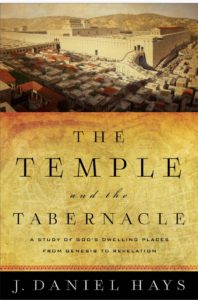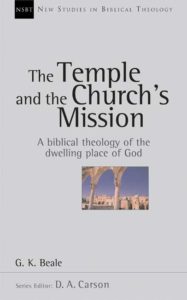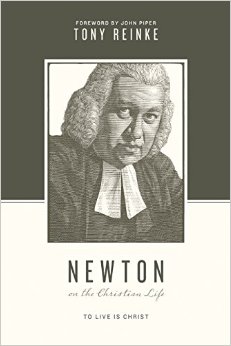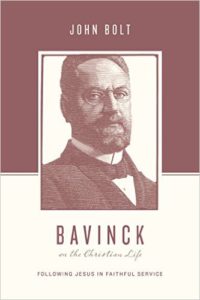Logos 7 is a mature program. When first installed it will look similar to Logos 6. To my mind a stable interface is good. It indicates that the focus of the upgrade is on content, and users are not forced to re-learn the program.
There is one area, however, where Logos 7 could have improved the interface: tablet mode in Windows 10. Often Logos does not display correctly when launched in tablet mode. The user must exit tablet mode, minimize the program, and then maximize it to correct the display error. Also, if a user is in tablet mode and attempts to move a tab to a separate pane by dragging the tab to the side of the screen, the operation will fail. The user must exit tablet mode in order to perform this operation. In addition, some of the newer interactive features work poorly with touch interaction. They will not scroll by swiping up or down on the screen (as with Bible or book text). And finally, a niggle. Windows 10 reduced the borders of windows to one pixel. Logos, which uses its own custom interface, still sports the wider window border.
These criticisms aside, I’ve enjoyed the following features in Logos 7.
Multiple Resources
Numbers of resources have a new multiple resources button |||. This tool allows users to create parallel resources under a single tab. For instance, an English Bible translation could be paired with a Greek text and/or a commentary. As the user moves through the English Bible, the other resources will stay in sync.
Why not open these resources in their own tabs and link them? That is still an option, but Multiple Resources is a better option in certain cases. For example, say that you want to have both your English Bible and either the Greek or the Hebrew text open while in church. Using link sets you had to open all three resources in separate tabs. The English Bible might be open in a pane on the left and the original language Bibles might be open on a pane on the right. If the pastor switches between the Old and the New Testament, you have to switch resources. Doable, but an additional step. Using Multiple Resources, open the English Bible, click on the multiple resources button and select both a Greek and a Hebrew Bible. If you are in John, the English will display on the left and the Greek on the right. If you move to Deuteronomy, the pane with the Greek NT will switch to the Hebrew Bible. Or if you selected the Greek New Testament, a Hebrew Bible, and LXX text, then moving to Deuteronomy will display English, Hebrew, and Greek side by side. Moving back to the New Testament will automatically revert to just the English and the Greek New Testament.
Another benefit of Multiple resources is that the synchronization only happens when the left-most text is scrolled (or a reference or page number is entered). Scrolling one of texts to the right does not move the left-most text. Why does this matter? Say that you want to view an English Bible and a commentary side-by-side. Using link sets, moving through the commentary will scroll your English Bible as well. But you may want to keep verses 1-6 all visible in the Bible even though you’re moving to verse 2 in the commentary. At the same time, you do want the commentary to move to chapter 4 if you move there in the Bible. Linked sets won’t work that way, but Multiple Resources do.
This is one of those little changes that makes a big difference in the usability of the program.
New Testament Use of the Old Testament
Logos 7 has a number of new interactive tools. The one that I’m most interested in is the New Testament Use of the Old Testament interactive. When studying the New Testament, it is easy to discover whether the Old Testament is being quoted or in the New Testament. But it is not quite as easy to find out if an Old Testament passage is used by the New Testament (though the back of the UBS GNT does have indices of quotations and allusions in the Old Testament order).
The New Testament Use of the Old Testament streamlines this task. Select an Old Testament source book and scroll to the chapter that interests you to see if there are any New Testament connections. These connections can be furthered narrowed. Perhaps you’re interested only in citations and quotations but not in allusions or echoes. You can further narrow your options.
One drawback at this point is that the interactive doesn’t allow users to select both citations and quotations at the same time. This may be possible, however, by drawing on the underlying database in a search.
Systematic Theology/Biblical Theology sections in Passage Guide
The passage guide now has nice Systematic Theology and Biblical Theology sections. When a verse or a passage is covered in a Systematic Theology or Biblical Theology it will appear in the Passage guide. The results can be sorted by resource or by theological loci.
This indexing is something that I do manually as I read theological books. If they have a significant treatment of particular passages, I place the bibliographic info in my notes on that passage. Logos 7 automates the process, which is nice. But, as with any automation, users need to be aware of the trade-off. It is better to read, understand a theological work, and index it for later use than to simply dip in and out of works because the software surfaced a link. On the other hand, the software could be used wisely to lead you to consider a theological work you may have otherwise missed.
Improved Grammar section in Exegetical Guide
The Grammar section in the Exegetical Guide has also been improved. It now divides up its results by kind. This may alert uses before they click as to whether or not they’re really interested in something from that section of the grammar.
Pslams and Proverbs Explorer
The Psalms Explorer is another interactive that I think has great value. It displays the psalms as bubbles, with each bubble showing the relative size of its psalm. Each psalm is also color-coded by genre. The Pslams can be sorted by book, author, genre, etc. Different criteria can narrow what is displayed. For instance, you could sort by author and then narrow to the each of the five books of the Psalter. This would alert you to the distribution of Davidic Psalms in the Psalter. Or you could sort by book and look at the distribution of genres or of a theme within each book of the Psalter.
The Proverbs Explorer works similarly. You can explore Proverbs by theme or by the proverb’s formal structure or by type of proverb.
The caution with this kind of tool is that decisions were made on how to tag the individual proverbs and psalms. Different interpreters might make different decisions. I’d be happy to see in future versions options for users to create (and share) their own datasets.
Bible Outline Browser
When I’m studying the structure of a book, I’ll often use Excel to map out where different commentaries make major and secondary divisions in their outlines. The Bible Outline Browser automates this task with the books in one’s Logos Library. In the future it would be nice to give the user the option to deselect some sources. It would also be nice to be able to zoom in and out of the outlines.
Conclusion
There are numerous other features that could be highlighted, and users with other interests might have highlighted the various manuscript explorers or the Parallel Gospel Reader or other interactives. I’ve highlighted here the features that I’ve already begun to use.
Learn more about Logos 7 here.
I thank FaithLife for a review copy of Logos 7.


 I first encountered this idea when reading G. K. Beale’s book,
I first encountered this idea when reading G. K. Beale’s book,  A simple desire to please God, to walk by the rule of his word, and to do all to his glory; like the famed philosopher’s stone, turns all the gold, consecrates the actions of common life, and makes everything that belongs to our situation in duty in civil in domestic life is part of our religion. When she is making our mending the children’s clothes, or teaching them, and when her maid (if serious) is cleaning the kitchen, or making a sauce, they may be as well employed, as when they are upon their knees or at the Lord’s Table. It is an unpleasant mistake to think all the time as lost which is not spent in reading, or hearing sermons, or prayer. These are properly called means of grace; they should be attended to in their proper season; but the fruits of grace are to appear in our common daily course of conduct. It would be wrong to neglect the house of God; it would be equally wrong to neglect the prudent management of her own house. It is chiefly as a mother in mistress of a family, that she can let her light shine to his praise. I would not have her think that she should serve the Lord better in any other station, than in the one to which his providence has placed her. I know that family cares are apt to encroach too much, but perhaps we should be worse off without them.
A simple desire to please God, to walk by the rule of his word, and to do all to his glory; like the famed philosopher’s stone, turns all the gold, consecrates the actions of common life, and makes everything that belongs to our situation in duty in civil in domestic life is part of our religion. When she is making our mending the children’s clothes, or teaching them, and when her maid (if serious) is cleaning the kitchen, or making a sauce, they may be as well employed, as when they are upon their knees or at the Lord’s Table. It is an unpleasant mistake to think all the time as lost which is not spent in reading, or hearing sermons, or prayer. These are properly called means of grace; they should be attended to in their proper season; but the fruits of grace are to appear in our common daily course of conduct. It would be wrong to neglect the house of God; it would be equally wrong to neglect the prudent management of her own house. It is chiefly as a mother in mistress of a family, that she can let her light shine to his praise. I would not have her think that she should serve the Lord better in any other station, than in the one to which his providence has placed her. I know that family cares are apt to encroach too much, but perhaps we should be worse off without them. While these nineteenth century Christians [pietists] forgot the world for themselves, we run the danger of losing ourselves in the world. Nowadays we are out to convert the whole world, to conquer all areas of life for Christ. But we often neglect to ask whether we ourselves are truly converted and whether we belong to Christ in life and in death. For this is indeed what life boils down to. We may not banish this question from our personal or church life under the label of pietism or methodism. What does it profit a man if he gains the whole world, even for Christian principles, if he loses his own soul?
While these nineteenth century Christians [pietists] forgot the world for themselves, we run the danger of losing ourselves in the world. Nowadays we are out to convert the whole world, to conquer all areas of life for Christ. But we often neglect to ask whether we ourselves are truly converted and whether we belong to Christ in life and in death. For this is indeed what life boils down to. We may not banish this question from our personal or church life under the label of pietism or methodism. What does it profit a man if he gains the whole world, even for Christian principles, if he loses his own soul?